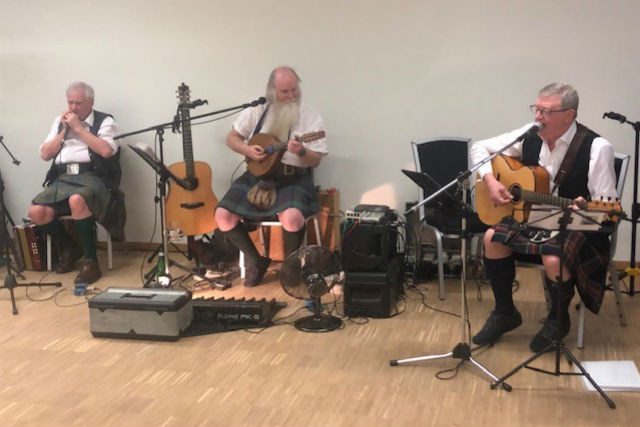The Burns Supper has been an annual tradition over the globe for more than 250 years and is only growing in popularity. But who was this man, hailed as Scotland’s favourite son?
Eldest son of tenant farmers Willian Burns and Agnes Broun, poet Robert Burns was born in Alloway in the west of Scotland on 26 January 1759. On 21 July 1796, he died in Dumfries at the tender age of 37, having battled illness for most of his short life. His life may have been brief by modern standards, but is fair to say that he packed a lot in.
This bard and bad boy was as a pioneer of the Romantic Movement, as well as a fierce political commentator. Indeed, many of the founders of socialism and liberalism are said to have been inspired by his work. He also had an eye for the lassies and fathered 14 children by almost as many women. Well, Scottish winters can be cold!
Above all, though, his poems have the capacity to touch hearts and set (especially, but not exclusively) Scottish blood afire and they remain as relevant today as when he penned them all those years ago. Burns spoke out for the common man, highlighting the injustices and inequalities of the time such as the unfair distribution of wealth and hypocrisy of the ruling class.
“What though on hamely fare we dine,
Wear hoddin grey, an' a that;
Gie fools their silks, and knaves their wine;
A Man's a Man for a' that:
For a' that, and a' that,
Their tinsel show, an' a' that;
The honest man, tho' e'er sae poor,
Is king o' men for a' that.” (A Man’s a Man for a’ that).
It wasn’t all social commentary though. Some of the Bard’s love poetry still sets hearts fluttering and one of the most famous songs in the world bar none is one of his too. “My Love is Like a Red, Red Rose” and “Auld Lang Syne” to be precise.
The Reimerwee echoed with these and more on Friday, and special thanks have to go to the band, On the Wagon, who led the singing and dancing throughout the night. The event’s guest speakers provoked both laughter and many a tearful eye as Gerry Verrechia (aka Laird of Dunans Castle) made the Immortal Memory dedicated to Burn’s life and works.
Barry Laidlaw delivered a side-splitting, and sometimes eyebrow-raising Toast to the Lassies, including some interesting advice on the best way to get a woman to keep a secret. The Reply from the Lassies was beautifully delivered by Cliodhna Dempsey, who sang three Burns songs perfectly in their original Scots language.
Participants were further entertained and impressed by Clive Griffiths who said the Selkirk Grace, Ewan McMillan, who delivered the Address to a Haggis with panache after it had been piped in by Anthony Orr, and Kate Fidler who ended the evening with a recitation of Ode to a Mouse. The entire evening was coordinated flawlessly by Ruth Springham.
The organising committee’s thanks go to Laurent Perquin of Reimerwee and his team, as well as to all those who played a role and helped set up.
